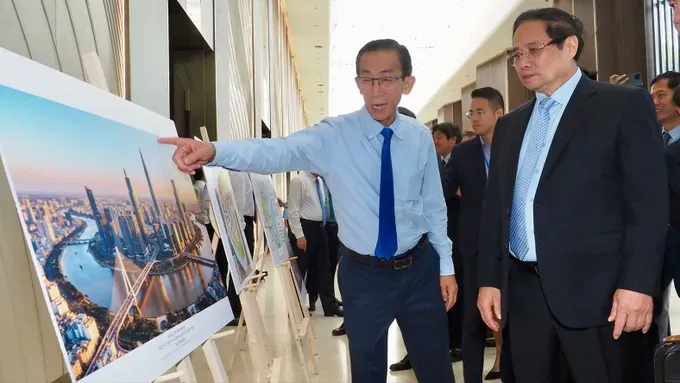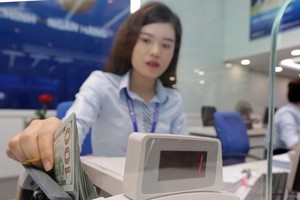
As the world transitions toward digitization and financial integration, the establishment of an International Financial Center (IFC) in Ho Chi Minh City is a strategic institutional decision at the national level.
The Prime Minister issued Decision No. 114/QD-BCDTTTC on August 1, aiming to bring the IFC into operation by the end of 2025. Earlier, the National Assembly passed Resolution 222/2025/QH15 effective from September 1, granting the IFC exceptional autonomy across several pillars of reform from tax incentives and flexible visa policies to foreign exchange liberalization and adherence to international accounting standards.
Vietnam’s IFC follows a ‘regulatory-first, market-second’ model, inspired by Singapore and Dubai. This bold institutional leap provides a flexible legal framework for piloting high-tech financial products, reducing the cycle from idea to market to just 12–18 months, compared to the current three-year timeline.
Ho Chi Minh City is carving a unique path in the race against Singapore, Hong Kong (China), and Dubai by prioritizing financial technology (Fintech) and digital finance over traditional strengths. Its strategy includes a fully digitized capital market and banking system, powered by AI and big data for enhanced risk management and tailored services.
The Ho Chi Minh City Stock Exchange (HoSE) has adopted the KRX system with blockchain integration, boosting transaction capacity, reducing congestion, and enabling real-time data transparency. A vibrant startup ecosystem, supported by venture capital within the IFC, leverages Fintech sandboxes to fast-track product commercialization. Green finance is also a priority, with carbon credit trading platforms, green securities, and sustainable bonds aligned with ESG standards.
IFC expected to spark a surge of innovation
Currently, Ho Chi Minh City is home to over 220 Fintech companies, including three top startups that have raised more than US$200 million from international investors. However, the startup ecosystem still faces major bottlenecks such as complex foreign exchange procedures, the lack of a regulatory sandbox, and an absence of international-standard data infrastructure.
The establishment of the IFC could unlock these barriers. With a permanent sandbox mechanism, models such as open banking, digital insurance, peer-to-peer (P2P) lending, real estate tokenization, and carbon credit exchanges could be tested in a safe, centrally supervised environment.
Beyond attracting medium- and long-term investment, the IFC is poised to give a strong boost to high-tech value chains like semiconductors, big data, cross-border e-commerce, and cloud services. Once capital accounts are fully convertible, global financial institutions will be able to establish structured investment funds in either VND or foreign currencies, enabling large-scale startup projects. Additionally, the carbon credit and digital asset markets are expected to become breakthrough sectors—fertile ground for environmental tech startups and ESG innovation.
However, for the IFC to truly take off, infrastructure and human capital are critical. Ho Chi Minh City’s Decision No. 2426/QD-UBND (2021) targets international-standard workforce development across eight key sectors, particularly Fintech, banking, and financial AI. A wide range of new training programs incorporating technologies such as Python, blockchain, and cybersecurity are already being offered in universities and research institutions.
Both physical and digital infrastructure are also being expanded. The IFC itself will be connected via a 400Gbps fiber optic network, feature integrated IoT-based utility management, and house a Tier IV-certified data center—essential for operating open banking models and real-time T+0 transactions.
To realize the potential of the International Financial Center (IFC), Ho Chi Minh City needs to focus on synchronized and breakthrough solutions:
(1) Strengthen Legal and Institutional Frameworks
Prioritize issuing regulations within local authority and propose to the central Government the implementation of special, superior policies—especially in foreign exchange, taxation, and banking operations.
Rapidly establish and effectively operate a Regulatory Sandbox for Fintech.
(2) Invest in Digital Infrastructure and Data Economy
Accelerate key transportation and telecommunications infrastructure projects.
Prioritize investment in modern digital technology infrastructure (data centers, cloud computing, AI, blockchain).
Propose policies for the data economy, promote Open Data and Open Banking/Finance, and enhance cybersecurity.
(3) Develop High-Quality Human Resources
Design and implement specialized training programs in finance, Fintech, AI, and blockchain.
Apply flexible and competitive policies to attract international talent.
(4) Foster Innovation and Startup Ecosystem
Create mechanisms to encourage international venture capital funds and Fintech-focused funds to enter the Vietnamese market.
Develop startup acceleration and incubation programs specifically for Fintech.
Build effective bridges between startups, tech companies, financial institutions, and investors.
(5) Enhance Global Connectivity and Positioning
Proactively participate in international financial forums and collaborate with leading IFCs.
Maximize the benefits of free trade agreements to expand markets for financial services and attract investment.
Ensure transparency and compliance with international standards to build trust and credibility globally.
























